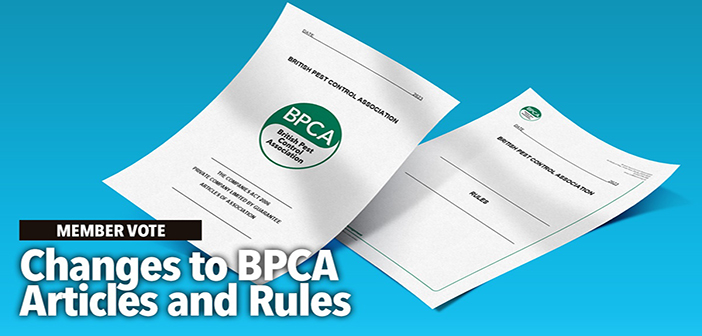BPCA members are being asked to vote on an updated set of Articles of Association and Rules at the BPCA Annual General Meeting on June 16.
What are the BPCA Articles of Association?
All companies must have Articles (or Articles of Association to give them their full name). It’s a legal document that details what the company is set up to do and how the company officers (in BPCA’s case, our Executive Board) must operate and run the company.
They act as a legally binding contract between the Association and its members.
They ensure the rights of the members and the Association itself are protected. They must comply with the Companies Act, which specifies the minimum they should cover. The Articles can only be changed by the members as a special business item of a General Meeting.
What are the BPCA Rules?
The Rules (previously called Regulations) are for the management of the Association and expand on the Articles with the relevant detail. For example, they state how the appointment of Directors is conducted.
Rules are within the control of the Executive Board, which can make “minor amendments” to them in Board meetings if those changes are then notified to Members.
Substantive changes can only be made by the Members in a General Meeting.
Why are these documents important?
As a member-led organisation, BPCA must be transparent and demonstrate good governance.
The Articles and Rules are the most important governing documents of the Association. They and their supporting documents are typically thought of as a bit of a company manual, defining the business purpose, detailing how decisions are made and clarifying how certain tasks should be completed.
They set out:
- The aims or purposes of the Association;
- How members are admitted;
- The rights and obligations of members;
- How the Executive Board is elected or appointed;
- How general meetings of members and meetings of the Executive Board are convened and conducted;
- How the Association is, in broad terms, to be governed;
- How member’s money can be spent or invested;
- The strategy of the Association;
- The Executive Board’s management of risk;
- How the Executive Board is accountable to the members; and
- What happens to the Association’s assets if it is ever wound up.
They’re also the vehicle a member would use if they have an issue about the governance of the Association.
Why does BPCA want to change these documents?
To do governance well, a good trade association seeks to review its governance arrangements before it’s hit by a crisis that necessitates drastic action and to ensure compliance with relevant laws, regulations and best practices.
It’s been a while (2013) since BPCA’s documents were reviewed.
Our governing documents weren’t broken, they complied with current laws and regulations, and they’ve not stopped the Association from achieving great things so far. However, as BPCA’s reach extends, our voice gets stronger, and the environment in which we operate changes, a review was required to ensure our growing Association has the agility it needs whilst ensuring members’ interests remain protected.
What’s changed in the Articles and Rules?
In common with most trade associations, the approach was to adopt best practices by starting with the model articles (designed to be a catch-all) for a Company Limited by Guarantee as a template and some further supporting information from our legal advisors.
Those documents were compared to our existing governing documents to ensure we created a new set of documents for the Association that were compliant with Company law, futureproof (as far as possible) and fit for purpose.
New stuff included in the proposed Articles and Rules:
- Up to two non-members can be appointed to the Executive Board; and
- The quorum for members’ meetings has changed to reflect a growing Association (this keeps members well-represented).
Stuff removed from the old Articles and Rules:
- We’ve dispensed with the mandated need to hold an Annual General Meeting (AGM);
- We’ve dispensed with the mandated need to have the statutory financial statements audited;
- There is no longer a maximum size for the Executive Board (was previously 15), meaning we’ve adjusted the quorum for Board meetings to keep members protected; and
- Directors no longer need to retire each year by rotation; instead, we’ve introduced Terms of Office (effectively three years).


